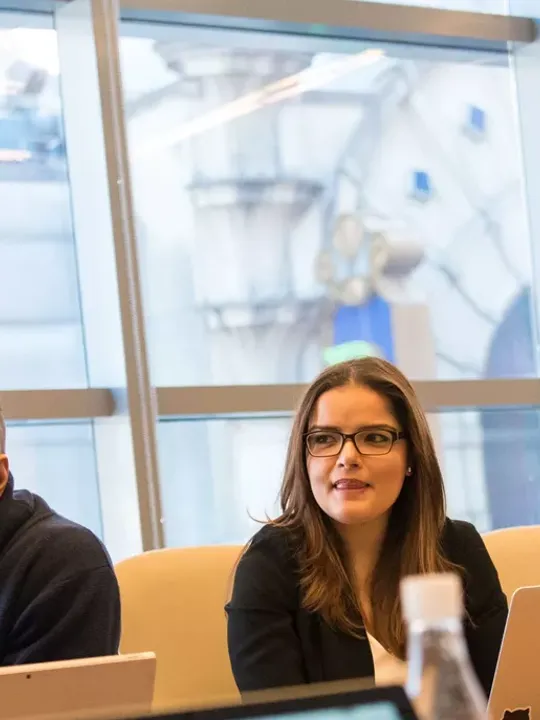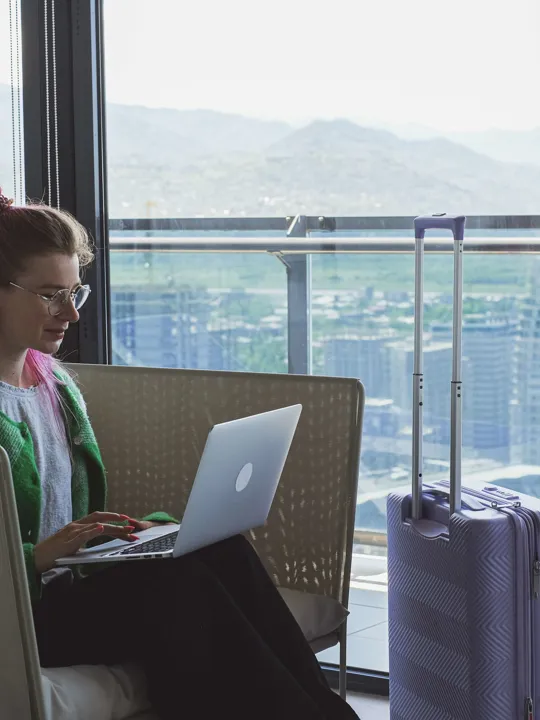How Remote Working is Changing The Hospitality Industry
Before the Covid-19 lockdowns, remote working was a habit adopted primarily by freelancers and business owners, with the vast majority of employees commuting to and from an office space each day. With the arrival of the pandemic, businesses across the world had to adapt in order to survive, which meant offering remote working to their staff.
Prior to the pandemic, working from home was an exception rather than a rule with staff going into their respective offices on average 3.8 days a week. Now, that statistic has decreased with staff reporting going into the office 1.4 days a week. Many businesses and industries have had to adapt to accommodate not only the pandemic, but also, the requests of staff. However, for some industries, remote working brings about positive change and more opportunities, such as for the hospitality industry.
Hotels are on the cusp of being able to offer ‘hybrid hospitality’ services and diversify their service offerings to consumers, which could see a whole new landscape for hotels and remote workers. In this blog, we’re going to dig a bit deeper and look at what this means for the future of the hospitality industry and the digital nomads and remote workers that could shape the evolution of the hotel industry.

Benefits for hotels
Since the pandemic, staff are becoming more attracted to jobs that offer hybrid working and companies that support remote work from different locations. This is creating opportunities for employees that seek a different type of work-life balance, and further opportunities for the hospitality industry to adapt to the changing needs of the market. The hotels that choose to adapt and offer consumers a more versatile and adaptable place to work could see huge growth. Colliers International has previously discussed the prevalence of ‘Hybrid Hospitality’ and predicts that hotels that provide an adaptable office space could see an increased turnover of up to 20%. Moreover, the hotels that adapt to this diverse offering and offer not only a place to eat and sleep, but also a venue to meet, work and collaborate, can optimise underperforming areas of the business.
Colliers goes on to define the qualities of ‘Hybrid Hospitality’ as:
Pleasant workspaces such as closed-off focus rooms, meeting and event rooms, and dedicated co-working spaces.
A general lounge room suitable for networking and socialising.
Hotel rooms with the option of workspaces - not just a small desk in a dark corner of the room.
Excellent facilities such as accessible and on-site meeting rooms, restaurants and bars which are also suitable for small-scale events.
Providing daily flexibility for work and meetings.
A ‘hospitality-first’ experience with the personal touch and on-demand service that’s already trusted.
An inspiring and dynamic environment with local and international allure.
Using underused spaces
Rebalancing of spaces can potentially help to reduce a company's carbon footprint and find use for underused or undesirable locations in the hotel. For example, an underused function or event room can be redesigned and turned into a multi-purpose working space where professionals can come and utilise hotel Wi-fi and a comfortable and sociable working space for as little or as long as they need.
Renovating old rooms or underused spaces to be turned into conference rooms, meeting spaces or ‘We Work’ spaces helps the hospitality industry to meet the more diverse requirements of its consumers. As such, hotels will connect further to the local community and offer a more mixed purpose which can result in an improved connection between the city and the surrounding areas and neighbourhoods, rather than limiting services to only tourists and travellers.
Dirk Bakker, Head of Hotels for EMEA region at Colliers International states “Hotels creating a place not only to sleep and eat but also to rent out space to meet, collaborate, socialise and work is a key way that underperforming areas within the building can be optimised from a revenue and income perspective. You can use hotel space twice while traditional work space only once. Not only could this concept appeal to institutional investors but I would not be surprised if this becomes a permanent new form of hospitality in the future.”
Whatsmore, hotels that offer a restaurant or cafe space, and other amenities such as a gym, can continue to diversify their services, offering consumers an all in one hub of facilities where they can work, exercise, eat and stay the night if needed.
This not only is a fantastic opportunity for professionals to utilise but also an ideal opportunity to appeal to the growing number of digital nomads who work from all corners of the globe. Digital nomads and remote workers are making up more and more of the workforce, with previous expectations of professional working becoming increasingly blurred. Thus, creating surprising opportunities for hotels everywhere.

Digital nomads
A digital nomad refers to someone who works remotely and doesn’t have a fixed location for their business or employment. Currently, it is estimated that there are 35 million digital nomads worldwide with the average age of a digital nomad being 32.
Hotels that offer more versatile hospitality for workers open up a host of opportunities for professionals to travel while still fulfilling their work responsibilities. This in turn could lead to long term stays where working professionals take longer holidays, using the hotel’s business and working environments as they would an office, with the added benefit of exploring the wider destination and relaxing in their free time. Forbes has previously discussed the possibility of this, defining three main criteria that hotels need to accommodate to attract more remote workers and digital nomads:
Working environment
Quietness and comfort
Amenities and benefits
In turn this could result in more workplaces and professionals adapting to a more hybrid way of working and the wider population could see the appeal of a ‘working holiday’ where vacationing and work hours can meet in the middle, should your hotel have the necessary facilities.
A real example
To take our findings further we interviewed travel writer, and self-proclaimed digital nomad, Thom Brown.
How often do you use hotel spaces to work?
“I rarely use a hotel as a digital nomad, I tend to stay in long term accommodation such as an apartment. If I'm in a hotel it’s usually for leisure rather than work.”
Have you ever used a ‘We Work’ space or do you prefer a private room?
“If I do need to work while staying at a hotel, I’d find a room with a desk or a nice common area where I can set up and work. Failing that, I'll find a nearby coffee shop.”
What would you like to see more of when using hotels?
“I would like to see hotels putting more emphasis on working and offering workspaces. I know some hostels and co-living spaces have really grabbed the remote work market and I think hotels could do more. If they combined this with their other amenities - spas, gyms, bars and restaurants, etc - then I could see myself using hotels more often. Especially if I’m only in a place for a few days, rather than a whole month or more.”
Our Conclusion
Our research suggests that the hotel industry has huge potential to grow if it adapts to the demands of its consumers and begins to move toward a more communal workspace that offers guests adequate facilities, flexible working environments, and additional amenities. In turn this could not only see a closer connection to the surrounding neighbourhoods and community, but also an increase in functionality, revenue, and foot traffic inside the hotel. As well as a new purpose for hotels that continue to listen to consumers and diversify their services.
Colliers’ prediction of an increased turnover (up to 20%) further enforces the potential that hotels can unlock if they push themselves into the digital nomad market and begin diversifying their services to accommodate the ever-changing needs of professionals. Moreover, this is a fantastic opportunity for hotels to become far more than just accommodation and begin a transition to hospitality hubs that provide a variety of services to different types of guests, rather than just travellers and tourists.
We expect to see these changes and more to the hotel industry in the coming years as we still recover from and adapt to new ways of living as a result of the Pandemic.

We can help
As a digital marketing agency with a heart for hospitality, we can work with your hotel to understand the dynamics of your unique and wider markets and create a specialist marketing strategy to increase traffic to your site, boost brand awareness and increase ROI. With over 30 years of industry experience and an exceptional team behind us, allow us to help your hotel unlock its true potential.